When Is the Best Time to Seed Your Lawn?
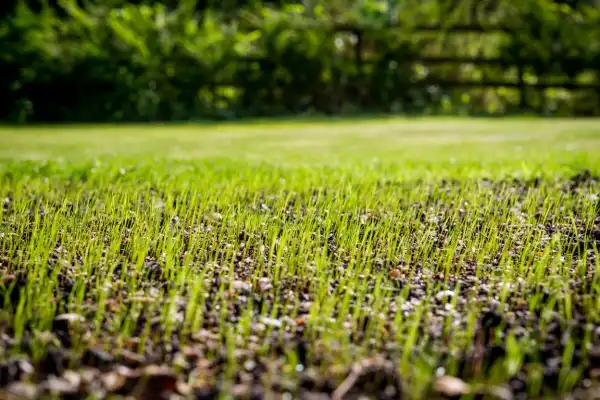
Lush, green lawns don’t just happen by themselves. Reseeding your lawn can cover up bare spots and give you a fuller, healthier lawn. That said, you can’t just throw grass seeds on your lawn at any time of the year and expect them to thrive. Timing is a major factor in the success of your lawn. That begs the question: When is the best time to seed your lawn?
When to seed your lawn will depend on a variety of factors. One of the most important is geography. Your location will determine whether you’ll have better results with cool-season grasses or warm-season grasses. The best time of year to seed a lawn differs between these two seed categories. Let’s look more closely at the optimal seeding time for both cool and warm-season grass seeds.
When to Plant Cool-Season Grasses
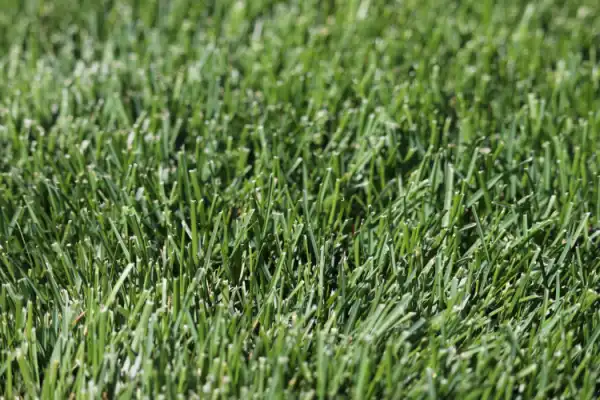
If you live in the Midwest or northern half of the country, you are probably a good candidate for cool-season grasses. These grasses go dormant in icy and snowy winters, allowing them to survive into the spring season.
Popular cool-season grasses include the following:
- Tall fescue
- Ryegrass
- Kentucky bluegrass
- Fine fescue
While you can plant these grass seeds in the spring, the best time of year to seed your lawn with cool grasses is the fall. In the autumn season, the soil is still warm from the summer, but your seeds will enjoy a more moderate temperature in which to germinate.
Planting Cool-Season Grass Seeds in the Fall
A good rule of thumb is that the farther north you live, the earlier you should plant your cool-season grass seeds. Ideally, you’ll want to put down your seeds about 45 days before the first fall frost.
In the most northern reaches of the U.S., that may mean planting in mid-August to mid-September. The farther south you go, the more time you have to plant. Residents in the Midwest may be able to plant their seeds from September all the way through October.
Cool-season grasses can germinate in as little as a week, so it may not take long until you see your new grass beginning to grow.
When to Plant Warm-Season Grasses
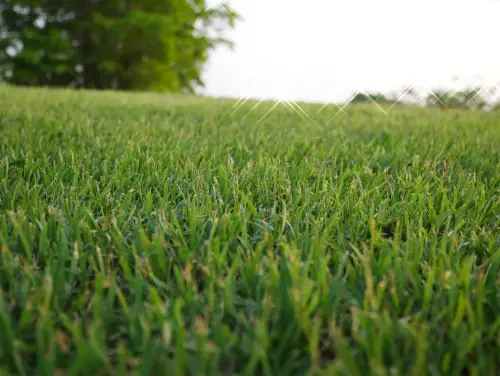
Residents of the southern states should strongly consider putting in warm-season grasses that can hold up better in hotter weather. These grasses include the following:
- Bermuda
- St. Augustine
- Zoysia
- Centipede
- Bahia
The best time of year to seed your lawn with warm-season grass is in the spring. Planting these seeds in the fall is risky, as they might not have enough time to germinate before the cold weather hits. This is especially true if you experience significant temperature fluctuations and cold snaps in the fall.
Planting Warm-Season Grasses in the Spring
Again, your geography matters when it comes to determining the best time to plant your warm-season grasses. Residents in areas that have a cooler spring will want to seed a little later in the season. Those in areas that experience a scorching summer may want to plant earlier to give their seeds time to fully germinate.
A good rule of thumb is to plant your warm-season grass seeds when temperatures hit around 80 degrees Fahrenheit. That may happen for some homeowners at the beginning of April. Others may want to wait until May to put down their seeds.
It generally takes about three weeks for warm-season grasses to germinate, so be patient after you put your seeds into the ground.
How to Prepare Your Lawn for Seeding
Now that we’ve addressed when the best time to plant grass seeds is, let’s look at some other factors that can help support the growth of your lawn. While choosing the right time to plant your seeds is important to the success of your lawn, you also need to prepare your lawn for the seeding process. The right preparation will help your seeds germinate and grow.
Clear and Level Your Lawn
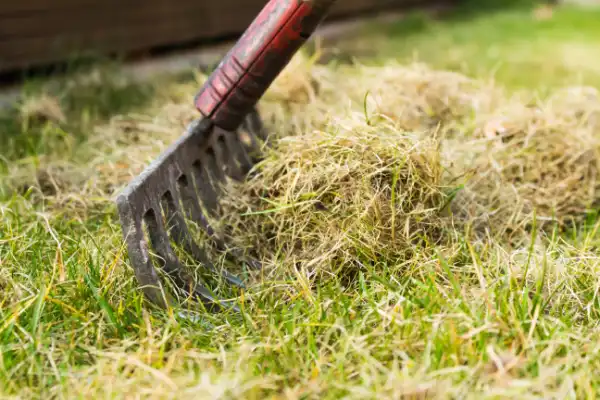
Before seeding, walk through your lawn and remove any debris, like tree branches, rocks, or dead vegetation. You might also want to level your lawn if you have noticeable peaks and valleys. You can use a soil mixture to fill in depressions in your lawn.
Aerate Your Lawn
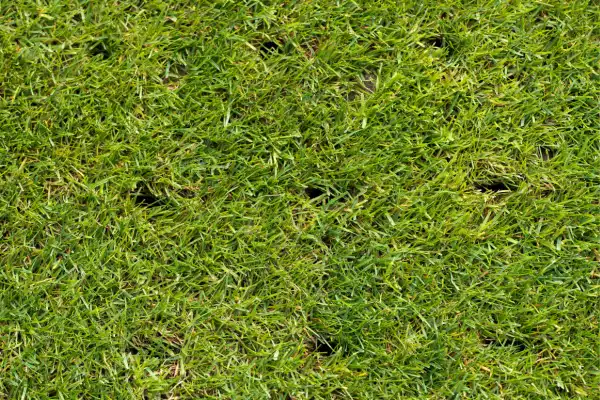
Over time, your soil can become compacted and stagnant. Compacted soil restricts air, water, and nutrients from reaching roots. Aerating is simply the act of perforating or punching small holes in the soil to help break it up and allow for a better flow of nutrients.
Test Your Soil pH
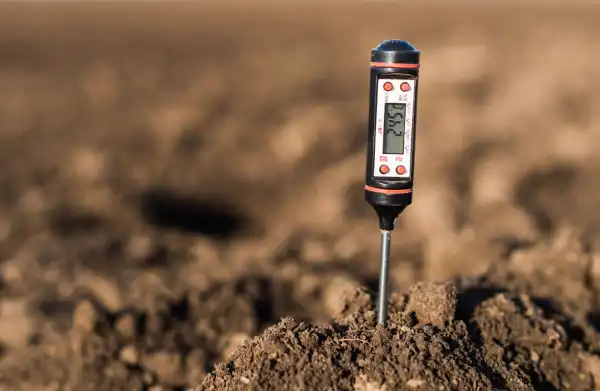
The pH of your soil plays a big role in the health of your grass. Soil that is too acidic or too alkaline can harm your grass roots and make it difficult for your new grass to absorb nutrients properly. Most grass seeds do best in soil with a pH between 6.5 and 7.
A simple pH test from your local home improvement or lawn care store can tell you whether your soil is acidic, neutral, or basic. Depending on the results, you can purchase mineral or nutrient mixes to add to your soil.
Fertilize Your Soil
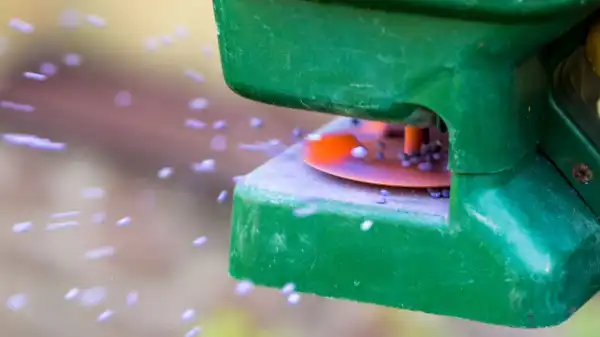
A parching summer or frozen winter can drain your soil of nutrients. One of the best ways to help your new seeds thrive is to fertilize your lawn. Choose a well-regarded fertilizer and add it to your lawn to give your seeds extra nutrients and strength. Fertilize your cool-season grass in the fall and your warm-season grass in the summer.
Work with the Experts to Seed Your Lawn
When is the best time to seed your lawn? We recommend seeding cool-season grasses in the fall and seeding warm-season grasses in the spring. However, these are just generalities. When to seed your lawn will also depend on many factors that are specific to your climate, soil composition, and even yearly weather patterns.
If you want the best results for your lawn, consider working with a professional lawn care team. Professional landscapers can determine which grass seed will work best for your lawn, especially if you live in a transition zone. A professional team can also help ensure your grass will thrive by doing all the prep work and continuing to care for your lawn throughout the year.
Ready for the lush lawn you’ve always wanted? Find The Grounds Guys® location nearest you for reliable, highly rated, and respectful landscaping services. We offer all our customers the Neighborly Done Right Promise™, which ensures your satisfaction. Contact us for a free estimate today!
 Click to call
Click to call


